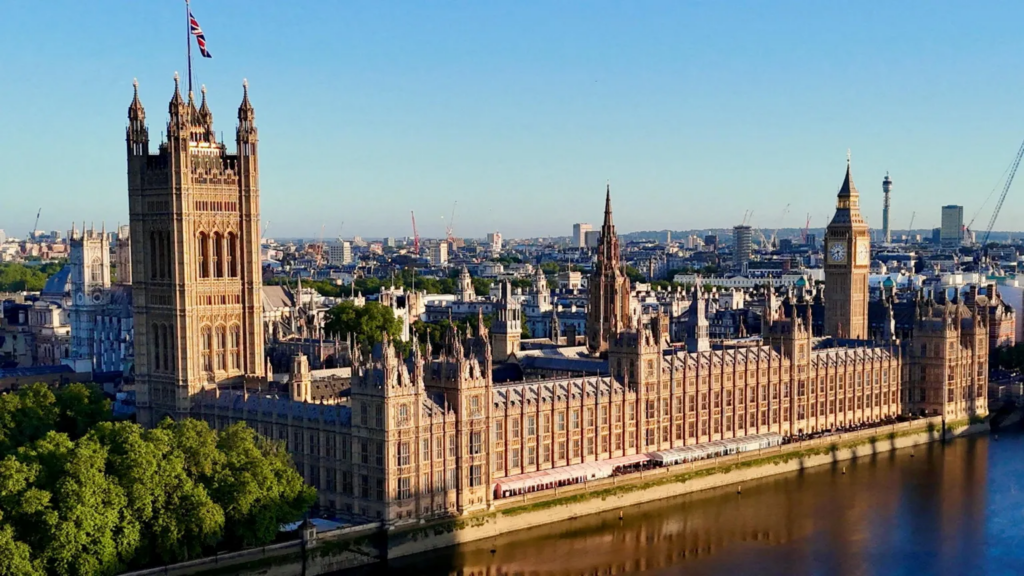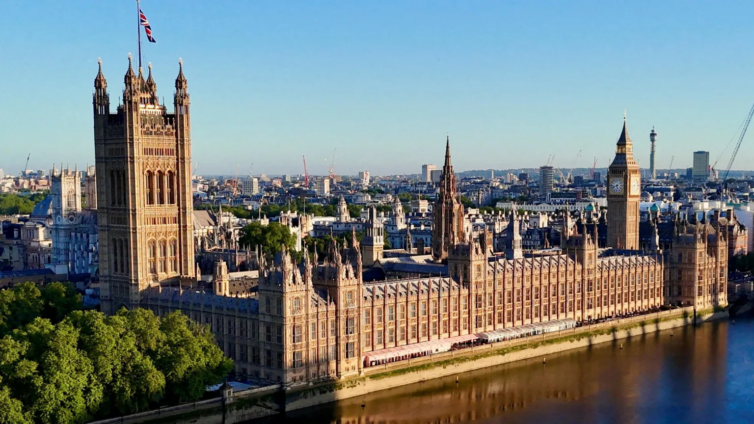Labour has suspended a party member after being notified of their arrest in connection with the Westminster "honeytrap" scandal, the BBC understands.
Police arrested a man in his mid-20s on suspicion of harassment and offences under the Online Safety Act in London on Wednesday.
Multiple alleged victims were informed by the Metropolitan Police shortly afterwards.
Earlier this year a string of men, mostly working in politics, revealed that they had received unsolicited, flirtatious WhatsApp messages from people calling themselves "Charlie" or "Abi". In some cases explicit images were exchanged.
In April, William Wragg, then an MP, resigned the Conservative whip after saying that he gave the phone numbers of fellow MPs to a man he met on a dating app because he was "scared".
Others targeted included the then-Conservative MP, Luke Evans, who said he had contacted the police after becoming "a victim of cyber-flashing and malicious communications".
In April the Met announced it was investigating reports of unsolicited messages being sent to MPs and others.
In the course of the police investigation, statements have been taken from all those believed to have been subject to unsolicited messages, including both Labour and Conservative MPs.

A Labour spokesperson said Wednesday was the first time the party had been made aware of allegations about the party member.
A spokesperson for the Metropolitan Police said: “On Wednesday 26 June, police executed a warrant at an address in Islington.
"A man was arrested on suspicion of harassment and committing offences under the Online Safety Act. He was taken into custody where he remains.
"The arrest relates to an investigation being carried out by the Met’s Parliamentary Liaison and Investigation Team following reports of unsolicited messages sent to MPs and others.
"The investigation remains ongoing.”
Police had first been made aware of the messages late in 2023, but news of them began to emerge publicly in April.
Following initial reports about the messages, Mr Wragg told The Times he had been chatting with someone on an app who subsequently asked him for the numbers of others.
"They had compromising things on me. They wouldn't leave me alone... I gave them some numbers, not all of them."
He apologised for “my weakness” which he said had “caused other people hurt”.
Subsequently other politicians and political journalists spoke of their own experiences of receiving unwanted messages
The following week, Luke Evans, then Conservative MP for Bosworth, said he had been a “victim of cyber-flashing”.
As many as 20 people in political circles were thought to have received unsolicited messages.
Latest Stories
-
Real Madrid beat Sevilla to keep pressure on leaders Atletico
53 minutes -
Liverpool put six past Spurs to go four points clear
55 minutes -
Manchester United lose 3-0 at home to Bournemouth yet again
59 minutes -
CHAN 2024Q: ‘It’s still an open game’ – Didi on Ghana’s draw with Nigeria
1 hour -
CHAN 2024Q: Ghana’s Black Galaxies held by Nigeria in first-leg tie
2 hours -
Dr Nduom hopeful defunct GN bank will be restored under Mahama administration
3 hours -
Bridget Bonnie celebrates NDC Victory, champions hope for women and youth
3 hours -
Shamima Muslim urges youth to lead Ghana’s renewal at 18Plus4NDC anniversary
4 hours -
Akufo-Addo condemns post-election violence, blames NDC
4 hours -
DAMC, Free Food Company, to distribute 10,000 packs of food to street kids
5 hours -
Kwame Boafo Akuffo: Court ruling on re-collation flawed
6 hours -
Samuel Yaw Adusei: The strategist behind NDC’s electoral security in Ashanti region
6 hours -
I’m confident posterity will judge my performance well – Akufo-Addo
6 hours -
Syria’s minorities seek security as country charts new future
6 hours -
Prof. Nana Aba Appiah Amfo re-appointed as Vice-Chancellor of the University of Ghana
7 hours

